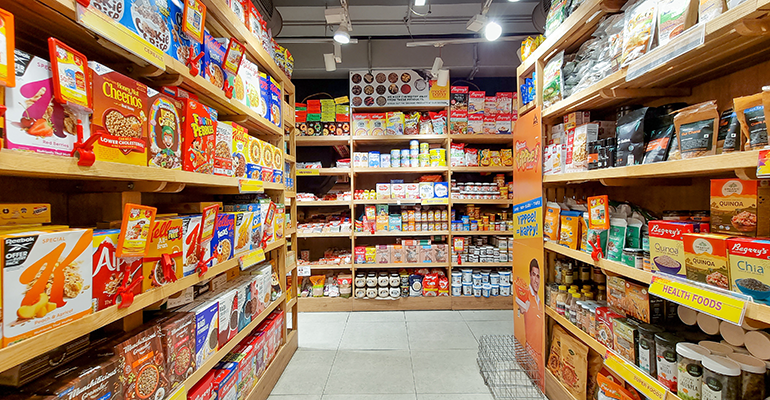News
World’s biggest brands are ‘over-reliant’ on unhealthy food sales
14 Mar 2023
Kraft Heinz, Kellogg’s, Unilever, and Nestlé are “over-reliant” on unhealthy food sales, according to new analysis of over 2,000 products by World Action on Salt, Sugar and Health (WASSH).
Together with responsible investment non-profit ShareAction, WASSH assessed more than 2,000 products made by five of the biggest global food and drink companies – Danone, Kellogg’s, Kraft Heinz, Nestlé, and Unilever – in Australia, France, and Mexico using national definitions of what constitutes healthier food and drink.

Kellogg’s was the worst offender with an overall company score of 82%, followed by Kraft Heinz (72%), Unilever (66%), Nestlé (62%), and Danone (35%), according to the WASSH report and survey.
The public health group found that most of the products in these companies’ portfolios would be classified as unhealthy. The exception was Danone; it was the only manufacturer with a greater share of healthier products available in each of the three countries.
To assess the products, the non-profit used official front of pack labelling models in three countries: Australia’s Health Star Rating, France’s Nutri-Score and Mexico’s black-and-white warning labels.
In France, if a product contained a NutriScore letter of C, D, or E and amber or red colours, this was deemed less healthy. In Mexico, a product was deemed less healthy if contained at least one warning label for calories, saturated fat, sugars or salt while in Australia, the criterion was if it had a score of less than 3.5.
Kraft Heinz’s food range was the least healthy in Mexico and France, with 100% of its 11 products sold in Mexico and 51 products (93%) in France classified as unhealthy. Out of the 2,346 products analysed, the highest proportion of unhealthy products was in Australia with 65%, compared to 63% in France and 60% in Mexico.
WASSH calls for government action
The report noted that there is strong public support for healthy reformulation of processed foods. A Censuswide poll surveying people in the UK, Australia, France, Mexico, Germany, and the US found that over 70% wanted brands to reformulate less healthy foods to make them healthier, and to produce more healthy alternatives to replace unhealthy products.
Some voluntary action is happening. WASSH and ShareAction noted that in the UK, manufacturers such as Premier Foods, AG Barr and Britvic are setting voluntary targets to help increase the longer-term sales of healthy foods. In the absence of mandatory regulations, they urged manufacturers around the world to do the same.
Mhairi Brown, head of policy, public affairs and international projects for World Action on Salt, Sugar & Health (WASSH), said: “Improving the nutritional content of food and drink by reformulating recipes with less salt, sugar and saturated fat is by far the most important strategy that any company should make to improve public health.
“However, by relying solely on industry’s willingness and without government enforcement, we are unlikely to see a meaningful shift. We need to see government leadership across the sector, with strict measures to include mandatory targets for reformulation.”
Healthy food pledges
WASSH used nutritional data and product information from company and retailer websites and shared this data with the five companies in question for verification. It noted that all companies provided feedback, except for Kraft Heinz.
Reacting to the report, Andrea Budelli, global environmental, social, and governance (ESG) officer at Kraft Heinz said the findings misrepresented the efforts it was making and that its portfolio of products was “designed to fit into any dietary pattern” and had committed to reducing sugar in its products by 2025.
A spokesperson for Nestlé declined to comment on the report but pointed to its healthy eating achievements published on its website, such as the fact there has been a 5.1% reduction in added sugar in its products since 2017.
Greater transparency over unhealthy food sales
Holly Gabriel, campaign lead for consumer health at ShareAction, said manufacturers were over-reliant on the sales of unhealthy foods, which were contributing to a global public health crisis, including the significant rises in type 2 diabetes and obesity. She urged brands to be more transparent and disclose the proportion of their sales that can be classed as healthier.
“Both Danone and Unilever have done this, with Nestlé committing to do the same. This disclosure must be followed with meaningful targets to grow the proportion of sales coming from healthier food and drink,” she added.
